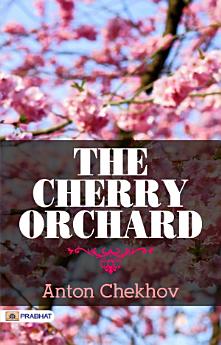Anton Chekhov's Russian classic play, The Cherry Orchard play, is a poignant Tragic comedy play and Psychological drama exploring Social change Russia through the lens of a Russian landowner family facing Family financial ruin. The central conflict revolves around the looming Cherry orchard sale story and the impending Loss of estate story. The play introduces memorable Chekhov characters like Lubov Andreyevna character, the extravagant matriarch haunted by a Drowned son memory and a complex Parisian lover drama. Her brother, Gaev character, is a charming but ineffectual figure known for his Billiard playing character and a sentimental Gaev cherry orchard speech. Their daughters include the optimistic Anya character and the burdened Varya character, whose Unrequited love plot with Lopakhin businessman is a significant thread. Lopakhin, a former peasant, represents the Rise of middle class and proposes a Land development plot to save the estate by Selling building lots and building Villas development story. The play's atmosphere is populated by unique supporting figures: Fiers old valet, a loyal remnant of the past haunted by the Emancipation impact history, the awkward Epikhodov clerk often called "Two-and-twenty troubles", the sensitive Dunyasha maid, the mysterious Charlotta Ivanovna governess known for her magic tricks, Pischin landowner, constantly seeking money and referencing figures like Nietzsche, and Yasha footman, eager to return to Paris. The play is set primarily in the Russian estate setting, moving between the Nursery setting play, the garden, and reception rooms, reflecting the family's connection to their past. Key sounds, like the Sound of breaking string symbolism and the distant Axe cutting trees sound, punctuate the narrative, culminating in the dramatic moment when Lopakhin buys cherry orchard. The Departure from estate in the Final act scene marks a definitive end. The play touches upon themes of Debts and mortgages, mentions the history of Selling dried cherries history, and features symbolic objects like the Hundred year old bookcase. Daily life includes details like Sealing wax medicine used by Fiers. Chekhov masterfully weaves elements of Provincial life Russia, depicting a society adrift, filled with characters like the philosophizing Trofimov eternal student, who advocates for a new Work philosophy Trofimov, dreams of a future Happiness philosophy Trofimov, and has a strong Future vision Trofimov. This insightful portrayal of decline and change makes "The Cherry Orchard" a compelling and enduring work of Chekhov drama. Even minor encounters, like a Tramp character encounter or receiving Telegrams from Paris, add depth to this rich tapestry of human experience. The play features moments of levity, like the Grand rond dance with the Jewish band music, and moments of searching, like Looking for goloshes Trofimov. The fate of characters like the Fiers forgotten character underscores the play's bittersweet conclusion.








